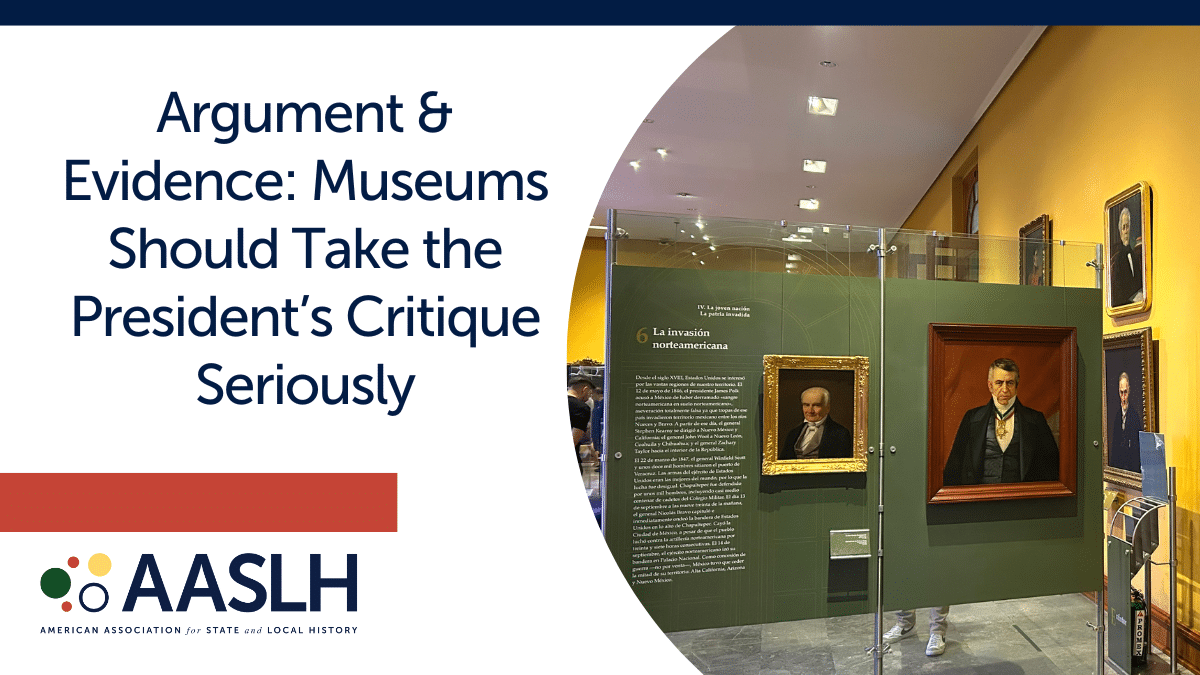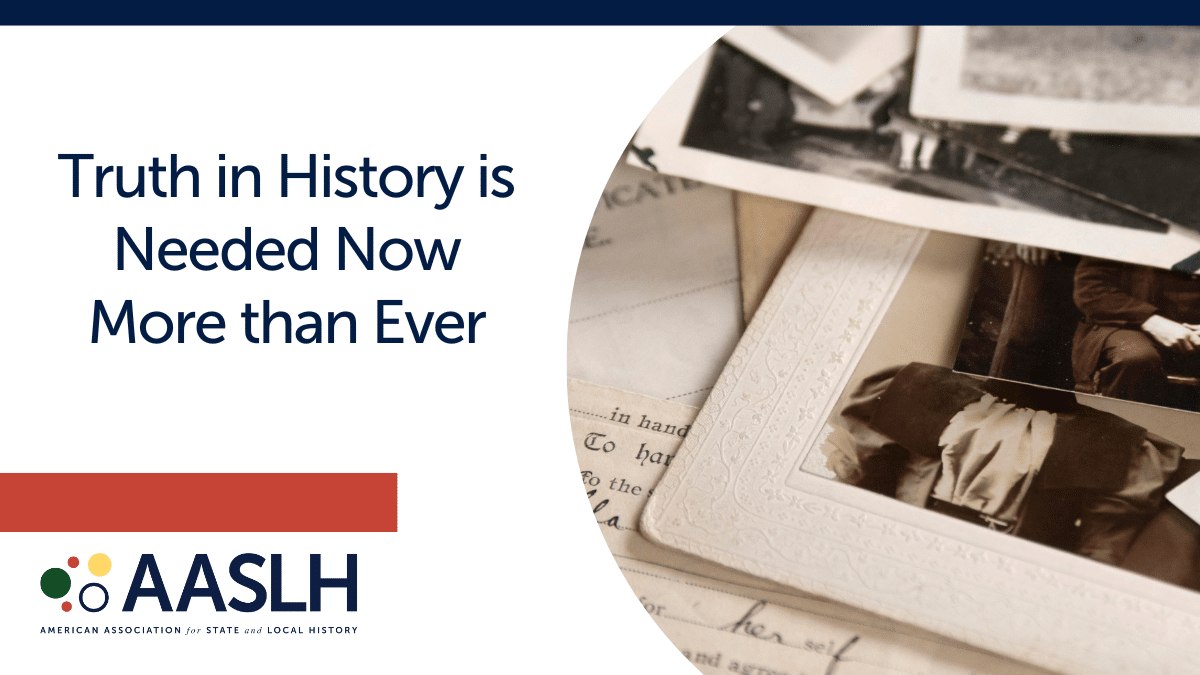
The past few days have provided crushing reminders of how the nation still struggles with violence and racism born in the past and harbored in the present. Even as we experience economic, social, and political upheaval due to a new foe, the COVID-19 virus, and are learning new ways to live and operate our institutions, we have not escaped legacies of inequality and violence. We must confront them, using our knowledge of the past to address the problems of today.
The American Association for State and Local History (AASLH) acknowledges the emotional and psychological impact that the recent killings and the daily experience of racism have on African Americans and others in our communities. AASLH endorses the words of historian and Smithsonian Secretary Lonnie G. Bunch in expressing “deepest sympathy to the families and communities of George Floyd, Ahmaud Arbery, Breonna Taylor, Tony McDade, and the far too many preceding them whose needless deaths were brought about by unjustified violence.” Like the Secretary, AASLH believes that “History is a guide to a better future and demonstrates that we can become a better society—but only if we collectively demand it from each other and from the institutions responsible for administering justice.”
AASLH calls on its members to redouble their efforts to preserve and interpret history that challenges assumptions, that uses evidence to trace continuities and mark changes, and that helps us to understand causation, especially in this core American story of racism and the struggle for justice. History organizations have a duty to address contemporary issues and can offer examples of historical resilience and creativity of people rising to meet challenges in the past. AASLH also calls on all history organizations, from museums to historic sites to historical societies, to embrace their roles as members of their local communities, and offer civic spaces, where people come together for conversations that can help overcome local and national division.



